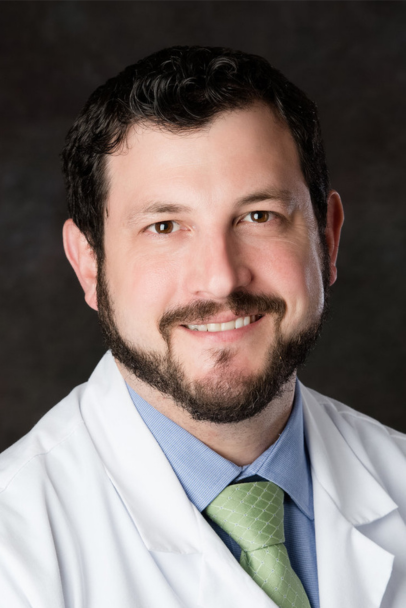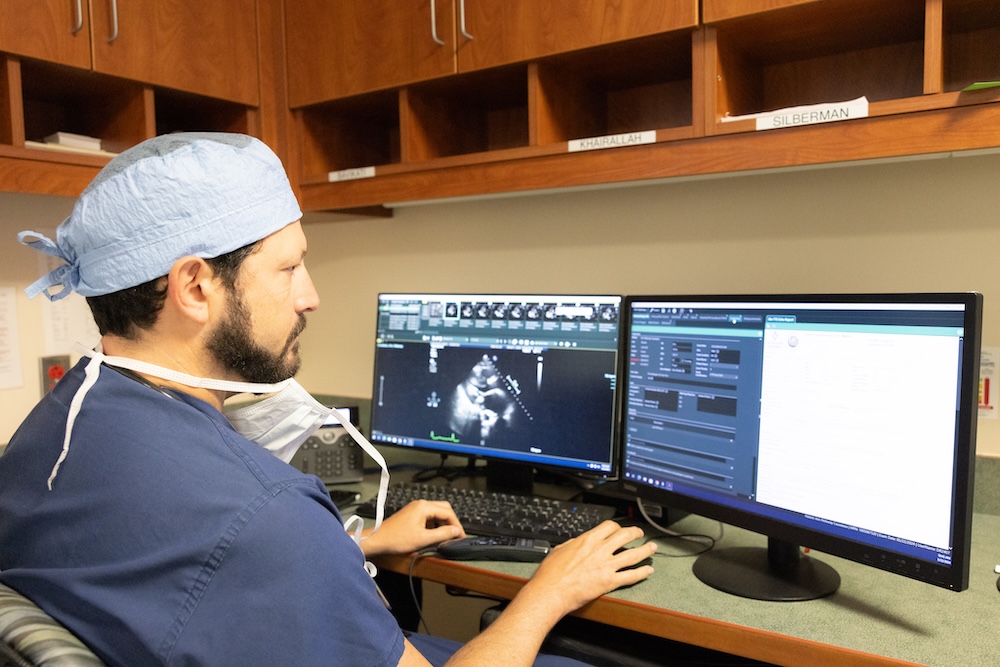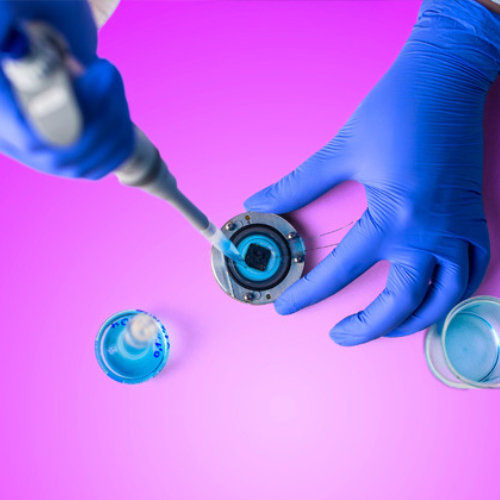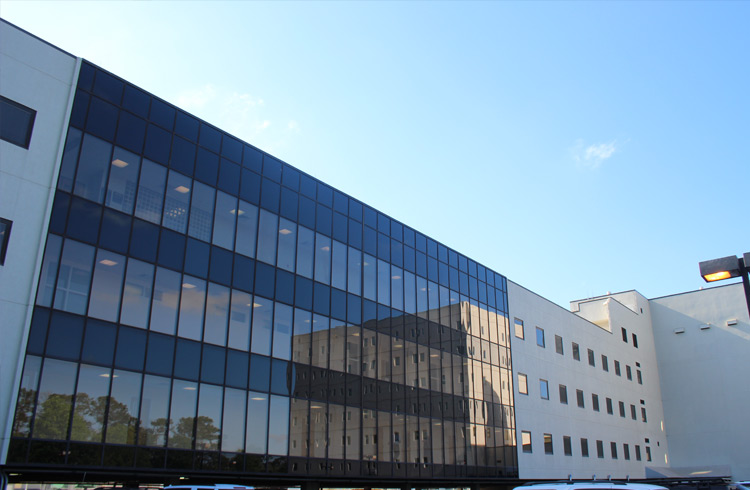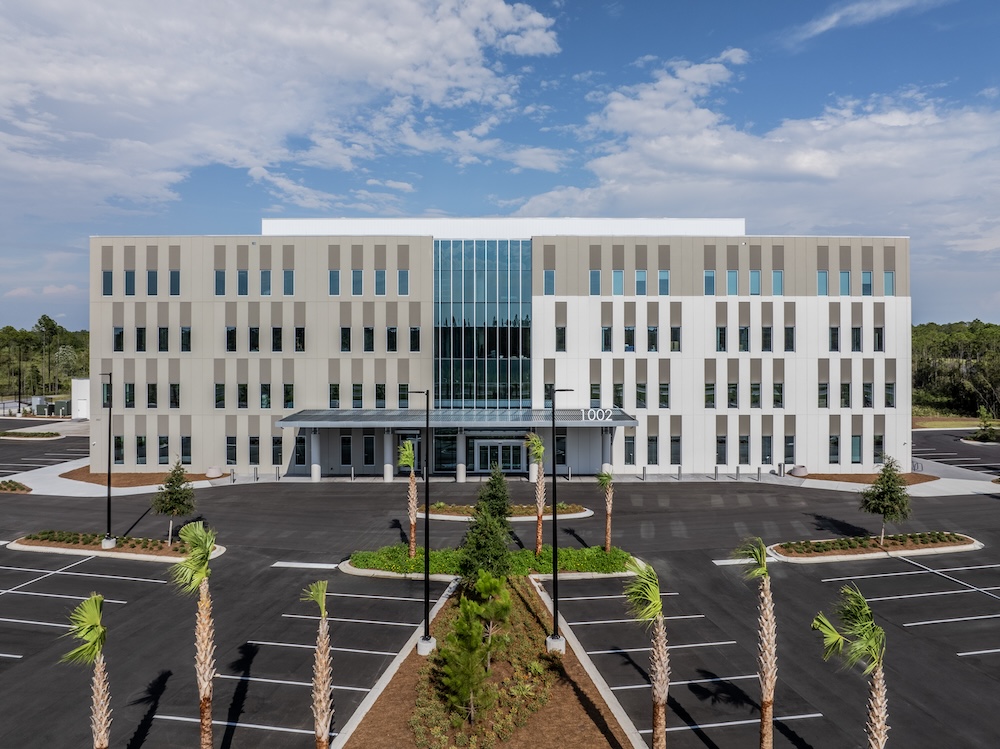TMH at the Forefront of the Emerging Field Of Cardio-Oncology
The latest advancements in chemotherapeutic regimens, including targeted therapies and immunotherapy drugs, have revolutionized cancer treatment, achieving outcomes that are “almost curative” for various malignancies. However, many of these therapies also carry significant cardiotoxic risks, which increase patients’ likelihood of developing end-stage heart failure and other serious cardiovascular complications.
Gregory R. Hartlage, MD, a Tallahassee Memorial HealthCare (TMH) cardiologist with fellowship training in cardio-oncology, emphasizes the importance of addressing these risks.
“Our goal is to prevent disruptions to cancer treatment caused by cardiac complications while minimizing the risk for drug interactions with chemotherapies,” Dr. Hartlage explained.
The TMH Cardio-Oncology Program specializes in caring for patients who face the dual challenges of cardiovascular disease and cancer. The program focuses on preventing, treating and even reversing heart damage resulting from chemotherapy and radiation.
Approximately one-third of patients undergoing cancer treatment experience cardiovascular complications.1 Additionally, childhood cancer survivors face a 15-fold higher risk for heart failure and a 10-fold higher risk for cardiovascular diseases compared with the general population, even decades after completing treatment.
“Newer regimens for lymphomas, leukemias, breast cancer, multiple myeloma and lung cancer are among the most cardiotoxic drugs in use today,” Dr. Hartlage noted. He leverages his expertise in cardiac imaging and cardio-oncology to proactively screen patients for early signs of cardiac dysfunction and intervene before these issues disrupt lifesaving cancer treatments. Adjunctive radiation oncology therapy, particularly in the chest cavity, also contributes to long-term cardiovascular risks.
To mitigate the effects of cancer treatments on the heart, Dr. Hartlage and his team collaborate closely with TMH oncologists to establish protocols for managing cardiotoxicity. This effort includes:
- Risk stratification: Identifying high-risk patients, such as those with preexisting heart conditions.
- Preventive strategies: Administering prophylactic treatments, such as blood pressure medications, to reduce the risk for complications.
- Focus on arrhythmias: Developing strategies to prevent immunotherapy-induced arrhythmias, a common adverse event.
If cardiovascular problems arise during cancer treatment, Dr. Hartlage works alongside medical oncologists to manage these conditions effectively, prioritizing both the continuity of cancer care and the minimization of cardiotoxic risks.
“The field of cardio-oncology is still emerging, and many cancer centers do not yet address these issues systematically,” Dr. Hartlage said. “Our main objective is to ensure optimal cancer outcomes while safeguarding patients’ heart health.”
References
- Anker MS, von Haehling S, Landmesser U, et al. Cancer and heart failure—more than meets the eye: common risk factors and co-morbidities. Eur J Heart Fail. 2018;20(10):1382-1384.
- Armstrong GT, Kawashima T, Leisenring W, et al. Aging and risk of severe, disabling, life-threatening, and fatal events in the Childhood Cancer Survivor Study. J Clin Oncol. 2014;32(12):1218-1227.
